Find Help
More Items From Ergsy search
-
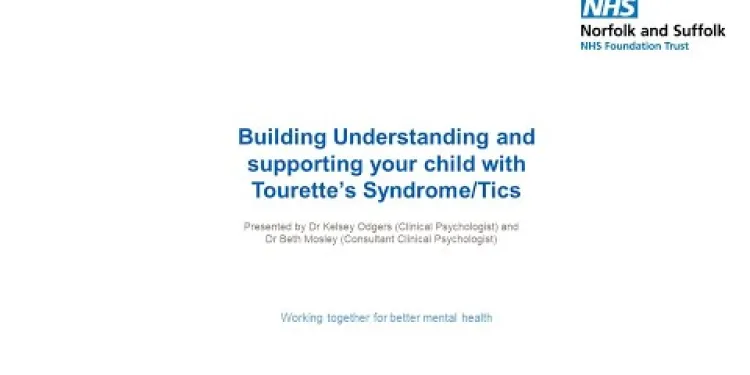
Building Understanding and Supporting Your Child with Tourette’s Syndrome/Tics
Relevance: 100%
-

Having a child with Down's syndrome | NHS
Relevance: 34%
-

Having a child with Edwards' syndrome (trisomy 18) | NHS
Relevance: 30%
-

Prader-Willi Syndrome | NHS
Relevance: 22%
-

Munchausen's syndrome | NHS
Relevance: 21%
-

Can children develop chronic fatigue syndrome?
Relevance: 21%
-

What is Cushing's syndrome?
Relevance: 20%
-
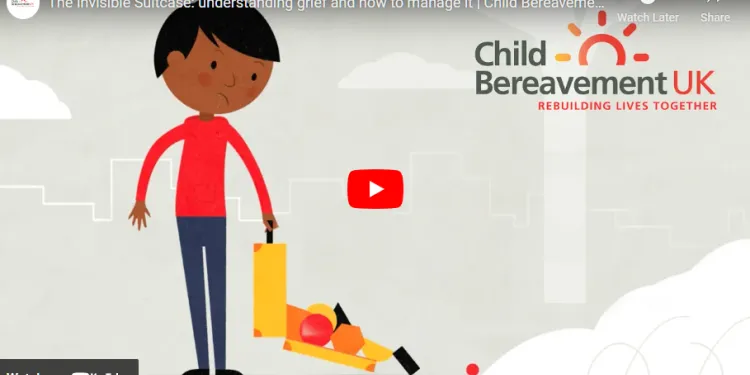
Child Bereavement
Relevance: 20%
-
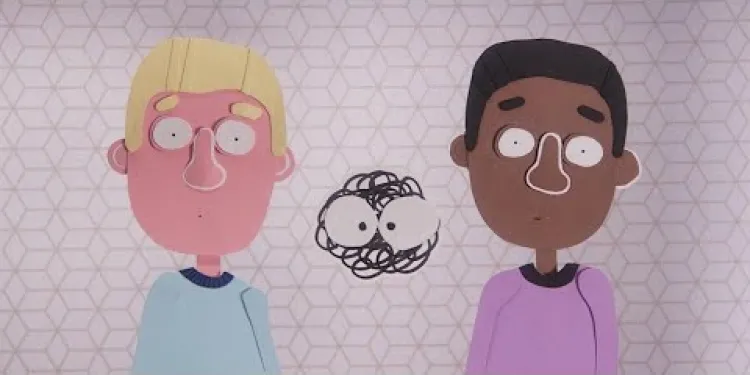
My Stammering Child
Relevance: 20%
-

Down's syndrome: Emily's story | NHS
Relevance: 19%
-

Carpal Tunnel Syndrome
Relevance: 19%
-
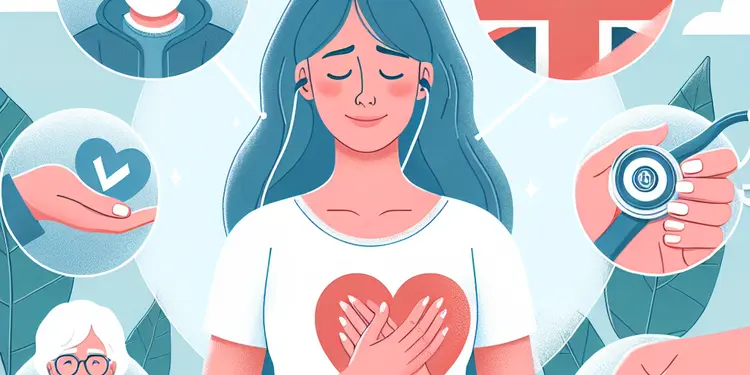
Is chronic fatigue syndrome contagious?
Relevance: 19%
-

Turner syndrome: Beyond the classic XO phenotype
Relevance: 19%
-

What is congenital rubella syndrome?
Relevance: 18%
-

What causes Carpal Tunnel Syndrome?
Relevance: 18%
-
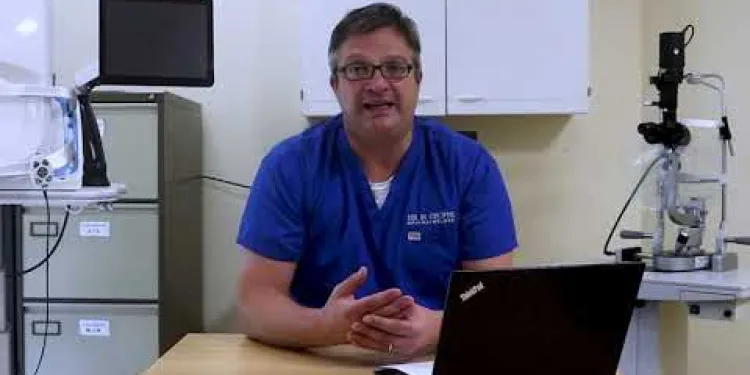
Charles Bonnet Syndrome
Relevance: 18%
-

What causes chronic fatigue syndrome?
Relevance: 18%
-

Navigating Child Custody Laws in the UK
Relevance: 18%
-

Is Carpal Tunnel Syndrome covered by the NHS?
Relevance: 18%
-
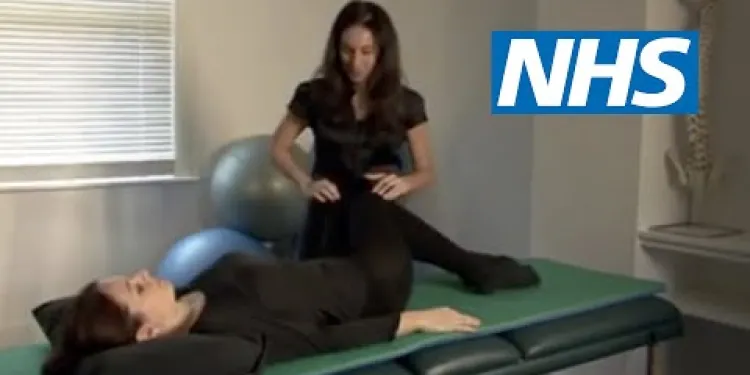
Exercises for sciatica: piriformis syndrome | NHS
Relevance: 18%
-

Is screening painful or risky for my child?
Relevance: 18%
-

How is Carpal Tunnel Syndrome diagnosed?
Relevance: 18%
-

Caring for a child with fever | NHS
Relevance: 18%
-
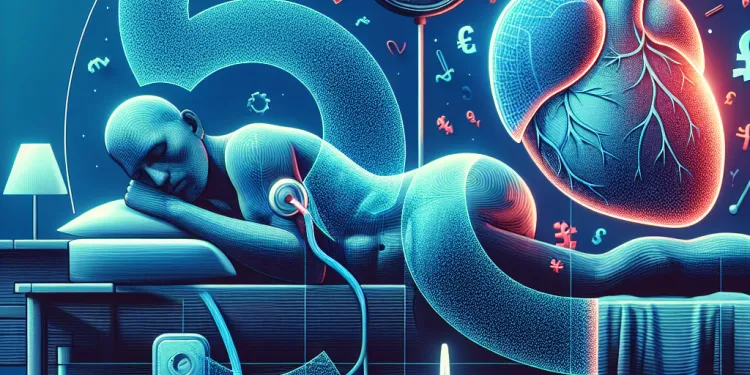
What is complex sleep apnea syndrome?
Relevance: 18%
-

What is complex sleep apnea syndrome?
Relevance: 18%
-

What is Carpal Tunnel Syndrome (CTS)?
Relevance: 18%
-

What is chronic fatigue syndrome?
Relevance: 18%
-

Child Care Proceedings | Family Law
Relevance: 17%
-

How can I prevent Carpal Tunnel Syndrome?
Relevance: 17%
-

What is the difference between autism and Asperger's syndrome?
Relevance: 17%
-

What should I do if I suspect my child is being groomed?
Relevance: 17%
-

Can my child get braces on the NHS?
Relevance: 17%
-
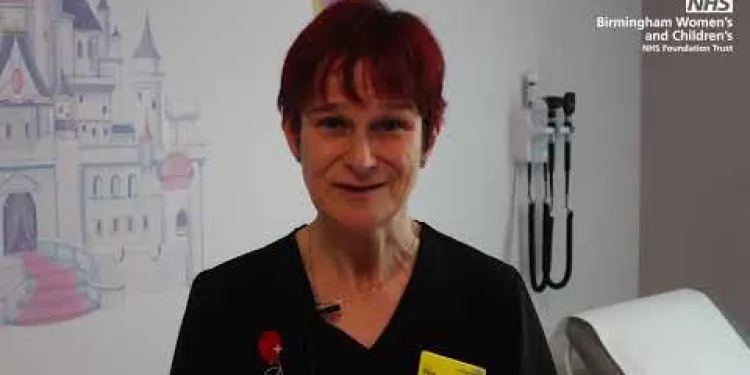
My child has vomiting and diarrhoea - what do I do?
Relevance: 17%
-

Are there any alternative treatments for Carpal Tunnel Syndrome?
Relevance: 17%
-

How can I tell if my child is being groomed?
Relevance: 17%
-

How to Keep a Child With Chickenpox Comfortable
Relevance: 17%
-

Navigating Child Custody and Visitation Rights in Modern UK
Relevance: 17%
-

Can Carpal Tunnel Syndrome recur after treatment?
Relevance: 16%
-

Are there psychological aspects to chronic fatigue syndrome?
Relevance: 16%
-
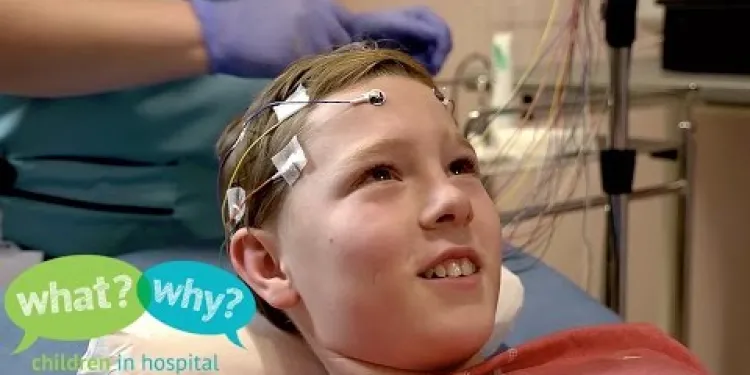
What happens when my child has an EEG?
Relevance: 16%
Building Understanding and Supporting Your Child with Tourette’s Syndrome/Tics
Understanding Tourette’s Syndrome and Tics
Tourette’s Syndrome (TS) is a neurological disorder characterised by repetitive, involuntary movements and vocalisations called tics. While these behaviours can be confusing and sometimes distressing, it's crucial to understand that children with TS have no control over their tics and should not be blamed or punished for them. In the United Kingdom, organisations such as Tourettes Action provide resources and support for families affected by this condition.Recognising the Symptoms
Symptoms of Tourette’s typically appear in childhood, between the ages of 5 and 10. The tics can be motor, such as blinking, head jerking, or facial grimacing, or vocal, such as throat clearing, grunting, or yelling. The severity of tics can vary, with periods of increased or decreased activity. Early recognition and diagnosis by a healthcare professional can help manage and support the child effectively.Supporting Your Child at Home and School
Creating a supportive environment at home is essential. Encourage your child to talk about their feelings and be patient and understanding. Establish routines and set realistic expectations. Work closely with your child’s school to develop an Individualized Educational Plan (IEP) if necessary, ensuring teachers are aware of the child's needs.Accessing Professional Help
Consult with healthcare professionals, such as paediatricians, neurologists, and behavioural therapists, to develop a comprehensive treatment plan. In some cases, medication may be prescribed to help manage severe tics. Cognitive-behavioural therapy (CBT) can also be effective in helping children manage the social and emotional aspects of TS.Building a Support Network
Connect with local support groups and organisations such as Tourettes Action, which offer resources, support, and a community of individuals facing similar challenges. These networks can provide invaluable advice, share experiences, and offer reassurance that you and your child are not alone.Promoting Awareness and Understanding
Raising awareness about Tourette’s Syndrome within your community can foster a more inclusive and understanding environment. Educate friends, relatives, and school staff about the nature of tics and the importance of empathy and support. Advocacy and education play a crucial role in changing perceptions and reducing stigma associated with this condition.Conclusion
Navigating life with Tourette’s Syndrome or tics can be challenging, but with understanding, support, and the right resources, your child can lead a fulfilling and successful life. By building awareness, seeking professional help, and creating supportive environments at home and school, you can make a significant positive impact on your child's wellbeing.Helping Your Child with Tourette’s Syndrome/Tics
What is Tourette’s Syndrome?
Tourette’s Syndrome (TS) is a condition that affects the brain and nerves. It causes people to make movements and sounds, called tics, that they cannot control. It's important to remember that children with TS do these actions without meaning to and should not be blamed or punished. In the UK, you can find help and information from groups like Tourettes Action.Knowing the Signs
Tourette’s usually starts when a child is between 5 and 10 years old. Tics can be movements like blinking or head jerking, or sounds like throat clearing or yelling. Tics can come and go and sometimes become more or less noticeable. It's important to see a doctor to find out if your child has Tourette’s so they can get help.Helping Your Child at Home and School
Make your home a safe and caring place for your child. Talk to them about how they feel and be patient. It's good to have routines and set goals they can reach. Work with your child's school to create a plan that helps teachers know how to help your child learn best.Getting Help from Experts
Talk to doctors, such as child doctors or brain specialists, to make a plan that helps your child. Sometimes, medicine can help with very strong tics. Talking therapies like cognitive-behavioural therapy (CBT) can also help children deal with feelings and social life.Finding Support
Join groups where you can meet other families who understand what you are going through. Organisations like Tourettes Action offer advice, support, and a community. These groups can help you feel less alone and offer ideas and help.Teaching Others About Tourette’s
It's important to teach people in your community about Tourette’s Syndrome. This helps everyone be more understanding and kind. You can tell friends, family, and teachers about tics and why it's important to support people with TS. Education helps change how people think and makes life better for children with tics.Final Thoughts
Living with Tourette’s Syndrome can be hard, but with understanding and help, your child can have a happy and successful life. By learning about TS, getting expert advice, and making good environments at home and school, you can greatly improve your child's life.Frequently Asked Questions
What is Tourette’s Syndrome?
Tourette’s Syndrome is a neurological disorder characterized by repetitive, involuntary movements and vocalizations called tics.
What are tics?
Tics are sudden, repetitive movements or sounds that people with Tourette’s Syndrome make. They can be motor (movement-based) or vocal (sound-based).
At what age do tics commonly appear?
Tics typically appear between the ages of 5 and 10, with the average onset being around 7 years old.
What causes Tourette’s Syndrome?
The exact cause of Tourette’s Syndrome is unknown, but it is believed to be linked to abnormalities in certain brain regions and neurotransmitters. Genetics also play a role.
Can Tourette’s Syndrome be cured?
There is no cure for Tourette’s Syndrome, but treatments are available to help manage the symptoms.
How is Tourette’s Syndrome diagnosed?
A diagnosis of Tourette’s Syndrome is usually made based on the history of tics lasting for more than one year and the presence of both motor and vocal tics.
What treatments are available for Tourette’s Syndrome?
Treatment options include behavioural therapy, medications, and in some cases, deep brain stimulation. The best approach depends on the severity of the symptoms and their impact on the individual's life.
What is Cognitive Behavioural Therapy (CBT)?
Cognitive Behavioural Therapy (CBT) is a type of therapy that can help individuals manage their tics by changing the patterns of thinking and behaviour that contribute to the tics.
Are there support groups available for families affected by Tourette’s Syndrome?
Yes, several organizations and support groups in the UK offer support, resources, and community for families affected by Tourette’s Syndrome.
Can lifestyle changes help manage Tourette’s Syndrome?
Yes, a healthy lifestyle, including regular exercise, a balanced diet, good sleep hygiene, and managing stress can help improve overall well-being and potentially reduce the severity of tics.
How can schools support children with Tourette’s Syndrome?
Schools can support children by providing appropriate accommodations, promoting understanding among peers, and working with parents and health care providers to address individual needs.
How can I help my child manage stress and anxiety associated with Tourette’s Syndrome?
Encouraging open communication, teaching relaxation techniques, and creating a supportive environment can help your child manage stress and anxiety.
Can Tourette’s Syndrome affect academic performance?
Yes, tics and associated conditions like ADHD or OCD can impact academic performance. Appropriate support and accommodations can help a child succeed in their studies.
Is it common for individuals with Tourette’s Syndrome to have co-occurring conditions?
Yes, it is common for individuals with Tourette’s Syndrome to have co-occurring conditions such as ADHD, OCD, anxiety, or learning disabilities.
What should I tell my child about their Tourette’s Syndrome?
Explain Tourette’s Syndrome to your child in age-appropriate terms, focusing on the fact that it is a medical condition and not their fault. Emphasise that they are not alone and that help is available.
What is Tourette’s Syndrome?
Tourette’s Syndrome is a condition that makes people do movements or sounds they can't control. These movements or sounds are called "tics."
Some people might blink their eyes a lot or make sounds like grunting or clearing their throat.
If you find reading hard, you can ask someone to read this with you or use a tool that reads text out loud.
Tourette’s Syndrome is a brain condition. It makes people have tics. Tics are movements or sounds that happen again and again, and people can’t control them.
What are tics?
Tics are movements or sounds that people make, which they cannot control. This means the person does not mean to make them. Tics can be something like blinking eyes a lot or making a noise.
Ways to help understand tics:
- Use pictures to show what a tic is.
- Watch a video about tics.
- Ask someone to explain with simple words.
It can be helpful to talk to a grown-up or a teacher if you want to know more.
Tics are quick movements or noises that people with Tourette’s Syndrome do again and again. They can be moves you make with your body or sounds you make with your mouth.
When do tics usually start?
Tics often begin when kids are between 5 and 7 years old.
If you or someone you know has tics, try talking to a doctor or using a diary to track when the tics happen. This can help!
Tics usually start when kids are between 5 and 10 years old. Most kids get tics when they are about 7 years old.
Why do people get Tourette’s Syndrome?
We don't know exactly what causes Tourette’s Syndrome. But we think it is linked to problems in some parts of the brain and with chemicals in the brain. It can also run in families, so genes are important too.
Can Tourette’s Syndrome be cured?
Doctors do not have a cure for Tourette’s Syndrome right now.
This means people with Tourette’s will have it for a long time.
But there are ways to help manage the tics.
Some people take medicine to make the tics smaller.
Talking to a doctor can help find the best way to manage Tourette’s.
Tools like breathing exercises, talking with friends, and using reminders can help.
People can live happy lives even with Tourette’s.
Tourette’s Syndrome cannot be fixed completely, but there are ways to help with the symptoms.
How do doctors know if someone has Tourette’s Syndrome?
Tourette’s Syndrome is when a person has tics for over a year. Tics are when you make sudden movements or sounds without meaning to. To diagnose it, doctors check for both motor tics (body movements) and vocal tics (sounds).
What treatments can help with Tourette’s Syndrome?
Tourette’s Syndrome is when someone makes sounds or movements they can't control, called tics. Here are some ways to help:
1. Medicines: Doctors can give special medicine to help make tics less.
2. Talking therapy: You can talk with a therapist. They can teach ways to manage tics.
3. Relaxation techniques: Breathing exercises or relaxing activities, like listening to music, can help keep tics under control.
4. Support groups: Joining a group where you can meet other people with Tourette’s can be helpful too.
It’s important to talk to your doctor about which treatment is right for you.
Treatment options include talking therapy, medicine, and sometimes a special brain treatment. The best choice depends on how bad the symptoms are and how they affect the person's life.
What is Cognitive Behavioural Therapy (CBT)?
Cognitive Behavioural Therapy, or CBT, is a type of talking treatment. It helps you change how you think and feel about things. CBT can help people feel better if they are sad, worried, or scared.
CBT talks about what's happening in your mind. It teaches you to change bad thoughts and habits into good ones. By talking and learning, you can feel happier and calmer.
Helpful tools for CBT:
- Use a notebook to write down your thoughts and feelings.
- Talk to a trusted adult if you need help getting started.
- Use pictures or drawing to understand your feelings.
Cognitive Behavioural Therapy, or CBT, is a kind of talking treatment. It helps people who have tics. Tics are when someone makes a sound or movement that they can't control. CBT helps by teaching the person how to think and act differently, so their tics get better.
Can families with Tourette's Syndrome find help groups?
Yes, families with Tourette's Syndrome can find help groups. These groups are called support groups. In support groups, people talk and share experiences. They help each other feel better.
To find a support group, you can:
- Ask your doctor.
- Search on the internet.
- Look for Tourette’s organizations.
Support groups can help families learn and feel less alone.
Yes, there are many groups and helpers in the UK. They give support and useful information for families that have someone with Tourette’s Syndrome.
Can changing how you live help with Tourette’s Syndrome?
Tourette’s Syndrome is a condition that often makes people move or make sounds suddenly (called tics). Some changes in daily habits might help people feel better. Here are some ways that might help:
- Relaxation: Doing calming activities like deep breathing, yoga, or listening to soft music can help reduce stress.
- Good Sleep: Getting enough sleep at night can make a big difference. Try to go to bed at the same time every night.
- Healthy Eating: Eating meals with fruits, vegetables, and lean proteins can keep your body and mind healthy.
- Exercise: Playing outside or doing sports helps your body feel good and strong.
- Talk about feelings: Talking to someone you trust, like a parent, teacher, or counselor, can help you feel better about your tics.
Remember, everyone is different. What works for one person might not work for another. It's important to talk to a doctor to find the best ways to help manage Tourette’s Syndrome.
Yes, living healthy can help you feel better and make tics less strong. To live healthy, you can:
- Exercise often. Try to move your body every day, like running, playing, or dancing.
- Eat balanced meals. This means eating lots of fruits, vegetables, and other healthy foods.
- Sleep well. Go to bed at the same time each night and make your bedroom a calm place.
- Manage stress. Try deep breathing or talking to someone about how you feel.
These tips can help you feel great!
How can schools help kids with Tourette’s Syndrome?
Tourette’s Syndrome means some kids might move or make sounds they can't control. Schools can do a lot to help them.
Here are some ways schools can help:
- Teach everyone about Tourette’s so they understand.
- Give kids a quiet space if they need a break.
- Let them use tools like stress balls to help stay calm.
- Allow extra time to finish work if they need it.
Having friends and teachers who care makes it easier for kids with Tourette’s.
Schools can help kids in these ways:
- Give them the help they need.
- Teach other kids to be kind and understanding.
- Work with families and doctors to know what each child needs.
How can I help my child feel less worried and stressed because of Tourette’s Syndrome?
Does your child have Tourette's Syndrome? This means they might have tics, like sudden sounds or movements they can't control. It can make them feel worried or stressed.
Here are some ways to help your child feel better:
- Talk to Them: Listen to what they are feeling. Let them know it's okay to talk about their worries.
- Create a Calm Space: Have a quiet place where your child can relax. This can be their room or a special corner with comfy pillows and soft lights.
- Teach Breathing Exercises: Show them how to take deep breaths. Breathing slowly in and out can help them feel calm.
- Keep a Routine: Having a daily routine can make your child feel safe. Try to keep a regular schedule for school, meals, and bedtime.
- Use Helpful Tools: Let your child use things that help them feel less stressed, like stress balls or fidget toys.
- Talk to a Doctor or Counselor: Sometimes talking to a professional can help your child feel better. They can give you more tips to help with stress and anxiety.
Remember, it's important to be patient and support your child. Helping them feel calm can make a big difference.
Talking with your child, teaching them how to relax, and making a safe and friendly place can help them with stress and worry.
Can Tourette's Syndrome make school hard?
Yes, Tourette's Syndrome can make school harder. Kids with Tourette's might need extra help.
Teachers and parents can help by giving breaks and using tools like stress balls or noise-canceling headphones.
It is important to talk with teachers about any help you need.
Yes, tics, ADHD, or OCD can make school harder. But with help and some changes, a child can do well in their learning.
Do people with Tourette’s often have other conditions too?
It is common for people with Tourette’s Syndrome to have other conditions at the same time. These can include ADHD, OCD, anxiety, or depression. Having more than one condition is called "co-occurring conditions."
If someone has Tourette’s and finds reading hard, pictures or symbols can help. Listening to stories can be helpful too.
Yes, people with Tourette’s Syndrome often have other conditions too. These can be ADHD, OCD, anxiety, or learning difficulties.
How can I talk to my child about their Tourette’s Syndrome?
Explain to your child what Tourette’s Syndrome is. You can say it means they might make sounds or movements they cannot control, like a cough or a twitch.
Tell them it's not their fault, and it's okay. Everyone is different in their own way.
Encourage them to ask questions. Let them know they can talk to you whenever they need to.
You can use music, drawing, or play to help your child feel better and understand more.
If your child likes stories, read books together about Tourette’s. It can help them learn and feel good.
Tell your child about Tourette’s Syndrome in a way they can understand. Say it’s something that happens in the body, and it is not their fault. Let them know they are not by themselves and that there are people who can help them.
Useful Links
This website offers general information and is not a substitute for professional advice.
Always seek guidance from qualified professionals.
If you have any medical concerns or need urgent help, contact a healthcare professional or emergency services immediately.
Some of this content was generated with AI assistance. We’ve done our best to keep it accurate, helpful, and human-friendly.
- Ergsy carfully checks the information in the videos we provide here.
- Videos shown by Youtube after a video has completed, have NOT been reviewed by ERGSY.
- To view, click the arrow in centre of video.
- Most of the videos you find here will have subtitles and/or closed captions available.
- You may need to turn these on, and choose your preferred language.
- Go to the video you'd like to watch.
- If closed captions (CC) are available, settings will be visible on the bottom right of the video player.
- To turn on Captions, click settings .
- To turn off Captions, click settings again.
More Items From Ergsy search
-

Building Understanding and Supporting Your Child with Tourette’s Syndrome/Tics
Relevance: 100%
-

Having a child with Down's syndrome | NHS
Relevance: 34%
-

Having a child with Edwards' syndrome (trisomy 18) | NHS
Relevance: 30%
-

Prader-Willi Syndrome | NHS
Relevance: 22%
-

Munchausen's syndrome | NHS
Relevance: 21%
-

Can children develop chronic fatigue syndrome?
Relevance: 21%
-

What is Cushing's syndrome?
Relevance: 20%
-

Child Bereavement
Relevance: 20%
-

My Stammering Child
Relevance: 20%
-

Down's syndrome: Emily's story | NHS
Relevance: 19%
-

Carpal Tunnel Syndrome
Relevance: 19%
-

Is chronic fatigue syndrome contagious?
Relevance: 19%
-

Turner syndrome: Beyond the classic XO phenotype
Relevance: 19%
-

What is congenital rubella syndrome?
Relevance: 18%
-

What causes Carpal Tunnel Syndrome?
Relevance: 18%
-

Charles Bonnet Syndrome
Relevance: 18%
-

What causes chronic fatigue syndrome?
Relevance: 18%
-

Navigating Child Custody Laws in the UK
Relevance: 18%
-

Is Carpal Tunnel Syndrome covered by the NHS?
Relevance: 18%
-

Exercises for sciatica: piriformis syndrome | NHS
Relevance: 18%
-

Is screening painful or risky for my child?
Relevance: 18%
-

How is Carpal Tunnel Syndrome diagnosed?
Relevance: 18%
-

Caring for a child with fever | NHS
Relevance: 18%
-

What is complex sleep apnea syndrome?
Relevance: 18%
-

What is complex sleep apnea syndrome?
Relevance: 18%
-

What is Carpal Tunnel Syndrome (CTS)?
Relevance: 18%
-

What is chronic fatigue syndrome?
Relevance: 18%
-

Child Care Proceedings | Family Law
Relevance: 17%
-

How can I prevent Carpal Tunnel Syndrome?
Relevance: 17%
-

What is the difference between autism and Asperger's syndrome?
Relevance: 17%
-

What should I do if I suspect my child is being groomed?
Relevance: 17%
-

Can my child get braces on the NHS?
Relevance: 17%
-

My child has vomiting and diarrhoea - what do I do?
Relevance: 17%
-

Are there any alternative treatments for Carpal Tunnel Syndrome?
Relevance: 17%
-

How can I tell if my child is being groomed?
Relevance: 17%
-

How to Keep a Child With Chickenpox Comfortable
Relevance: 17%
-

Navigating Child Custody and Visitation Rights in Modern UK
Relevance: 17%
-

Can Carpal Tunnel Syndrome recur after treatment?
Relevance: 16%
-

Are there psychological aspects to chronic fatigue syndrome?
Relevance: 16%
-

What happens when my child has an EEG?
Relevance: 16%


